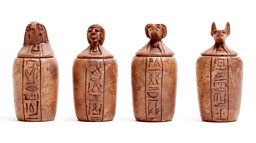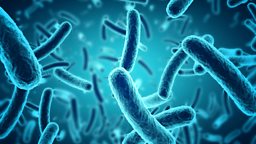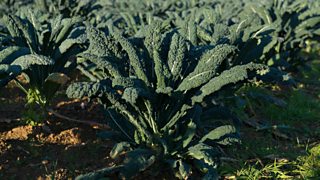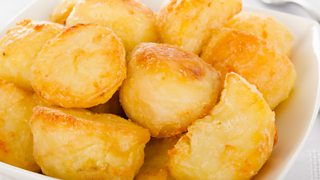Eleven fascinating facts about the gut
In The Gut Instinct: A Social History, Tim Hayward journeys through the bowels of history exploring our changing relationship with the human gut. Talking to scientists, historians, academics and linguists, he starts looking into the darkness of our alimentary canal with a whole new light.
Tim asks, what is our historical relationship with the gut? Why is the gastrointestinal tract so important? And how can we help it do its job?
1. The ancient Egyptians had a god for the guts
Most of us will know that when an important person died in Ancient Egypt their body was embalmed and wrapped in linen. What most of us won’t be aware of is that the person’s gut was removed from the body and placed in a special container called a canopic jar. It was thought to then be looked over and protected by its own God called Qebhesenuef.
2. The gut used to be seen as the seat of emotion
Dating right back to the Ancient Greeks, the bowels rather than the heart were regarded as the seat of emotion. It was thought to be in the gut that pity, peace and compassion – or anger in some cultures – resided. Although we now refer to the heart as the seat of passion and emotion we might still say we are gutted about something when we’re disappointed.
3. In India, black ants were used to suture intestinal injuries
In ancient Indian medicine giant ants were used to suture - or hold together/stitch the edges - intestinal wounds. When held close to the wound, the ants would close their large jaws over the injury. The body of the ant would then be twisted off, leaving just the head clamped on. For larger injuries a whole line of ants would be used. Because they are organic, the body was thought to absorb them as it healed. Ant sutures were widely in use until as late as the 16th century!

-
![]()
The Gut Instinct: A Social History
Tim Hayward journeys through the bowels of history, exploring our changing relationship with the human gut.
4. One man’s gunshot wound led to a greater understanding of the stomach
Alexis St. Martin was a Canadian voyager who was shot at close range with a musket. The accident left a hole through his side and resulted in direct access to his stomach via a fistula, or abnormal channel. One scientist – army surgeon William Beaumont – saw this as an opportunity to run experiments, inserting various foods into the patient’s stomach and observing the results. Beaumont’s endeavours helped improve our basic understanding of gastric physiology: we learnt that the turning motion of the stomach is digestion and that the gastric juices are secreted from the stomach lining.
The human gut is around nine metres long.
5. Napoleon may have lost the Battle of Waterloo because of constipation
Napoleon suffered badly with his digestion and piles, which were a consequence of constipation. So much so that in the days preceding the Battle of Waterloo he was unable to get on his horse and supervise the troops. On top of this, his physicians gave him too much laudanum, which delayed the start of the fighting and arguably lost him the battle. Perhaps if he’d had a high-fibre diet things might have turned out very differently…

6. One scientist proved that a bacterium could cause stomach ulcers – by drinking it
In the early eighties Professor Barry Marshall had a theory that a bacterium – Helicobacter pylori – could cause stomach ulcers. As the theory had been largely rejected, he took matters into his own hands: he harvested some bacterium from a patient and drank as much of it as he could grow. Within a week he was extremely ill and a biopsy showed severe colonisation of the bacterium in the stomach. His simple experiment leapfrogged years of slower research, proved his theory and ultimately won him a Nobel Prize.
A vast neural network operating in your guts communicates directly with your brain. This is why your gut is often referred to as your "second brain".
7. The gut uses more of the brain than speech
Although we’re entirely unconscious of it, the gut uses more of our grey matter than many other bodily functions like speech. Researchers have also discovered that a vast neural network operating in our guts communicates directly with the brain in our head. This ecosystem – some 100 million neurons, more than in our spinal cord – is often referred to as our “second brain.” Evidence suggests that our gut can actually influence our mood and mental health.
8. They have found micro-plastics in the human gut
Modernity presents various threats to our gut microbiome, one of which was uncovered in a recent study. In October, a pilot study on a small sample of people from all over the planet found micro-plastics in the human gut for the first time. Long-term effects are as yet unknown…
9. We can listen to the gut to diagnose problems
Irritable Bowel Syndrome affects 10 to 20% per cent of people in the UK but diagnosis can be difficult, elusive and invasive. However, a new venture in Australia – The Noisy Guts Project – could be a step towards cheaper and more accurate diagnosis. Professor Martial and his team are developing an acoustic belt that records gut noises over time and using a super computer, and clever algorithms, they now have an 85% rate of diagnosis for IBS. Who knew tummy rumbles could tell us so much?
10. The weight of living microorganisms in a healthy gut is greater than any other single organ in the body
The human gut is around nine metres long from oesophagus to anus – that’s around ten times longer than the length of the human body. Our bodies contain around 100 trillion bacteria, a whopping proportion of which are perpetually hard at work in our gut. Estimates suggest that each of us has around a kilogram of bacteria living in our intestines at all times.

11. Fermented foods are a friend to the gut
Good gut bugs help our body digest food and absorb nutrients, synthesise certain vitamins and minerals, and fight against intruders like the flu virus. Maintaining the health of our microbiome is crucial to our overall wellbeing. We can do this by consuming colourful, plant-based foods (veggies, fruit and pulses); fibre, which feeds our good bacteria too; and fermented foods that contain probiotics. Try introducing kimchi, kefir and pickles into your diet.
Learn more about your gut and listen to The Gut Instinct: A Social History.
-
![]()
The Gut Instinct: A Social History
Tim Hayward journeys through the bowels of history, exploring our changing relationship with the human gut.
-
![]()
Is this the world's most nutritious vegetable?
Cavolo nero, or black kale as we call it here, is now being grown in the U.K.
-
![]()
We attempt to bust some of the myths surrounding this hotly debated topic.
-
![]()
Some of the ways in which social media platforms have fed what we eat.




